
MIND GAMES
Andre Riddick knows just what goes on in the heads of talented-but-frustrating college athletes — because once upon a time, he was one of them
FLORENCE, Ky. — It was 2009, and the room was filled with smiling, eager faces. They were ready for a new chapter to begin. They were ready to put the Gillispie experience behind them. The crowd, a mix of university suits and former athletes, welcomed the man who was at the center of the party, the newly hired coach named John Calipari.
Calipari was so good at this sort of thing. He remembered names and faces, and made everyone feel welcome. He shook hands and laughed and reaffirmed to everyone that he
was the perfect man for this job. Suddenly, he saw one old acquaintance, and Coach Calipari had to introduce the former player to his wife.
“This guy broke my heart,” Calipari told his wife. He pointed at the tall man’s chest. “Just broke my heart. I wanted him to come to UMass and he breaks my heart … and goes to Kentucky.”
Then Cal gave the former player a bear hug.
And Andre Riddick just smiled.
After all — it was just water under the bridge. They were both Wildcats now. Finally, they were family.
BACK IN TOWN
There’s several games playing here on the big screens but no one seems to be paying much attention. I’m at the bar, waiting for my acquaintance to arrive.
On one television Coach K is going for career win No. 999 against Pitt. On another, Lebron is teaching Chicago a lesson in humility via a circus-shot layup. Just then the door opens and my acquaintance walks in, looking much like he did in his playing days, minus the Kid ‘n Play high-fade haircut. He’s still tall — 6-foot-9, though his hunched walk makes him seem a bit shorter — and he still looks like he needs to eat more. I’m certain he could be knocked over by a moderate wind.
Yes — this is the guy who almost had the triple-double. This is the guy who did, in fact, choke Rasheed Wallace.
He sees me, shakes my hand and offers a hello before sidling up to the bar.
A young female bartender in a low-cut top takes our order. “Hey Andre,” she purrs.
Andre Riddick smiles. He’s a bit of a regular at this place, a spot where he can sit and have a beer and watch a game and sometimes still mingle with fans, young and old, who remember him as the shot-swatting center for the Kentucky Wildcats in the mid 1990s.
It’s been about a year now since he officially retired, choosing to move back to northern Kentucky after an impressive 18-year overseas basketball career. The choice was easy — his three children live in the area, with their mother. He wants to watch them grow up.
As we order, a song comes on the bar’s radio, and it’s one that takes us both back — “Return of the Mack” by Mark Morrison. “It’s still good — it really holds up,” I say, and he agrees.
Andre Riddick can relate. Eighteen years is a damn long time for any athlete to play a professional sport.
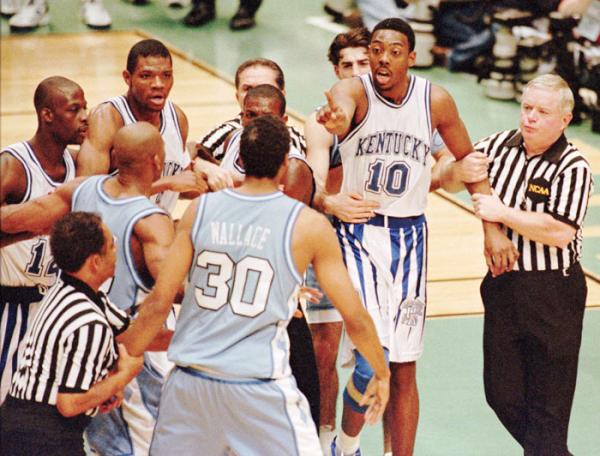
FROM NYC TO LEX
Jordan played for 15 years. Barkley played for 16. Andre played in Japan (with Deron Feldhaus), Taiwan (with Rodney Dent), Venzuela, Belgium, and France for 18 seasons.
How did he do it? He finally got it, he says. He finally learned to hone his talent and love the game. But it took Andre Riddick a while — he did not, as he says, “put all the pieces together” until he was long out of Kentucky blue.
But it makes sense when you know his story. And it might make Riddick the best to understand today’s athletes — guys like the Harrison twins, Karl Towns Jr., and Trey Lyles — the guys who have all the talent but seem to have trouble consistently putting it all together.
Riddick grew up in New York City, in one of the most drug-ridden and violent places in the world. Did he know the dealers? Yes. They were everywhere. “You were either in jail or you were dead,” he says. “There were a lot of things pulling at you. That draw was always there.” Luckily, he and his brothers were tall and were able to use basketball to make it out of their situation. He first dunked when he was 13 years old. He was 6-foot-4. But from an early age, Riddick never loved the game. It was a tool, something he could use to better his life.
“Basketball wasn’t a first priority for me,” he says. “And Coach Pitino would say that. They knew I didn’t enjoy basketball that much then — but it grew on me over the years. I got to enjoy it more.”
He was drawn to a few college campuses out of high school. One was Syracuse. Another was Pitt, where a player named Orlando Antigua would become a star. Then there was UMass, where a young coach was trying to turn the program around with very little star power. He talked a big game — and he made it seem intriguing.
“UMass was a good place — I felt like it would have been a good opportunity for me,” he says. “Both Coach Pitino and Coach Calipari come from the same mold — but they don’t coach the same. They don’t see things the same. They both have big personalities. That’s the one thing about being at UK — you have to have the right personality. You have to deal with so much, and they both have that, so that’s why it works.”
But back in 1991, Kentucky had the former coach of the New York Knicks. And there was another former New York City kid who raved about the program and what was happening. His name was Jamal Mashburn.
“I never saw (UK) practice,” he says. “I was real lazy at that time, and I think if I’d have watched them practice, I probably wouldn’t have come to UK. But honestly, the first letter I received was from Kentucky. And I saw myself getting some minutes there. The seniors were going to be gone and they needed some big men. Plus, Mash was there. I could see myself there.”
He did not think about getting to the NBA. “I was just worried about getting playing time,” he says. “I didn’t even think about (the NBA). I didn’t even think it was a possibility.”
Riddick would go on to play for the start of one of the most successful runs in Kentucky basketball history. In his freshman season, the Cats lost to Duke in the Elite Eight. (As an aside, I wondered if he or Aminu Timberlake begged Pitino to guard Grant Hill on the famous inbounds pass. Riddick shook his head. “We thought we won. We thought the game was over. Myself and Timeberlake, we never really had a chance to think. We trusted Coach P’s decisions. He told us to steal the ball — how it happened wasn’t supposed to be that way. We didn’t steal it. We weren’t aggressive — no one to blame, we just didn’t do what we were supposed to do.”).
In his sophomore season, Mashburn and Travis Ford led the Wildcats to the Final Four. Along the way,
Riddick tallied a near triple-double against LSU in the SEC Tournament Championship game, with 15 points, 10 rebounds and nine blocks. “Just a great group,” Riddick says. “That second year, we were coming back and trying to put it all together. We had a shot to win it all. When you make it a little further, the losses hurt a little worse.”
After an upset loss to Marquette in the NCAAs his junior year, Riddick’s senior season was magical. The team was loaded with talent and many thought the Wildcats would return to the Final Four. Instead, they met Jerry Stackhouse, Rasheed Wallace and the Carolina Tar Heels. Four minutes into the game, Riddick fouled Wallace, who then elbowed Riddick in the face.
Riddick then lunged forward, chocking the Carolina star. It was the most emotion anyone had ever seen from Riddick on the basketball court.
https://www.youtube.com/watch?v=oQECNSfpjy0
“It wasn’t anything I planned,” he says, looking back. “I noticed during the game they were tyring to be extra physical — a few possessions before that, I saw Stackhouse do somehting, then Wallace do something, but it wasn’t anyting I was going to retaliate for. That’s how they were playing the game — that was their strategy. Thing is, you just push through it. They thought we were soft. I made a play on the ball, I made a dumb foul, the ref called the foul, and instead of stopping, Sheed kind of continued with it, where he didn’t have to. Everything else before that was cool — it was just basketball. But when you do that, it’s not basketball. I’ve never done that. I’ve never got hit, fouled, and then continued and hit someone in the face. I’ve never done that in all the years I played. Now it’s kind of like, I wish I could have held myself back, but at that time that’s how I was. And at the time I felt like there was nothing else I could do. I tried to choke him — I did choke him. I put my hand around his neck and pushed him. I tried to do some more because it really upset me. I was saying all kinds of things. I can’t tell you how much that upset me.”
Oddly enough, a foul was issued to Walter McCarty for the fracas.
“Coach P and I talked about using your head and staying under control,” Riddick says. “We were a talented team and other teams tried to do things to get to us. That game, we didn’t play like we could have. That’s one of those games I regret because I feel like we were better than them. I was on the bench when the game ended and I just sat there. I didn’t even go shake hands. Rasheed and their guys came over and shook hands with me.”
With the loss to North Carolina in the Elite Eight, Riddick’s college career was over. And he still hadn’t gotten the most from his potential. He didn’t prepare for games like the coaches said. He didn’t love basketball.
GETTING IT - FINALLY
In 2014, Riddick came home.
Not to New York, but to Kentucky. By that time, he’d seen the world. The 41-year-old had played as long as he could. All told he won eight championships on his different stops and he’s still a celebrity in Belgium for his basketball heroics.
Of course, nothing compares to the reception he still gets from the Big Blue Nation. Several hundred came out that spring to a signing at a local store in Florence.
“Andre got a really great crowd,” said Jim Ransdell, owner of The Kentucky Shop. “UK fans remember every player and appreciate them all. The fans especially appreciate humble and appreciative guys like Andre.”
He now looks back on his pro career and he’s proud he was able to play that long. Somewhere, on a court in Venezuela or France, all those things his coaches told him about eating right and staying mentally strong and preparing every day to play as a professional finally hit home.
“It kind of clicked over there, what Coach P told us about getting ready and working hard and being prepared,” he says. “I played hard, but sometimes I just didn’t have the understanding of the game that I needed to to take advantage of my strengths. I was a defense guy and I kind of turned that into the best I could do. In the European leagues I was the all-time leader in blocks and rebounds. I won championships over there. I played with some great teams, even in my older years. I think people respected me for what I could do. I was one of those guys people still wanted to play with — even when I was 40.”
Now, when Riddick watches this year’s Kentucky teams, he sees himself in the players. He sees guys like Willie Cauley Stein and Karl Towns Jr. still struggling to grasp how good they can be. He sees the maturity in the Harrison twins, and how much they’ve learned since last year.
“I felt really bad for Alex Poythress when he got hurt,” Riddick says. “I could tell he was close to putting it together. First you get used to the level of play in college, but you also need to figure out what you bring to this team. Where’s my spot? What shots do I take? What’s my role? It’s not like high school. Maybe he can keep making progress and come back for a big season.”
If he sounds like a coach, it’s by design. Financially, Riddick can afford to wait a while and figure out what he wants to do next in life. He wants to watch his children grow up. Maybe he’ll try sports radio. Then, he can see himself coaching.
“I belong coaching somewhere,” he says. “As a player it takes about until January to get used to the college game. That’s when you start feeling more like you understand college basketball. I think Poythress was getting to that point. I think you’d have been able to depend on him. He was going to make the difference.”
Riddick thinks he can make a difference, too. He thinks he can get in these players’ heads and help them out.
“That's the thing,” he says. “It's not something you come to the gym and share one night. It's an ongoing progress. The conversation is just a way of letting the player know I can relate because I have been there.
“Sometimes that may be what they need to hear and that's it, but more often it's a process. It would be about them evaluating where they are and where to get where they want to be, game-by-game.”
There’s a pause in the conversation, and we look up at the televisions on the closest wall of the bar.
Riddick watches the college game intently. He never glances over at the NBA game. Not for a second.
Not once.
QUOTES FROM ANDRE RIDDICK:
WHEN RICK PITINO WENT TO LOUISVILLE:
It didn’t really affect me. I thought about Mr. Bill Keightley. Sometimes you can’t pick and choose and you go where the jobs go. I think it’s a shame people try to erase everything (Pitino) did (at Kentucky) just because he coaches (at UofL) now. They forget what it was like here, when UK was on probation, and they forget that the reason all these great players came to UK was because of him. You wouldn’t have Mashburn. You wouldn’t have Tony Delk. Any of those guys. You need to respect what he did. Hate him if you want — that’s the rival school. But you’ve got to respect what he did.
- IN THE MODERN ERA, RIDDICK WAS THE SHOT BLOCKER. WHAT ABOUT ANTHONY DAVIS, NERLENS NOEL, WILLIE CAULEY-STEIN AND KARL TOWNS JR.?
“That’s my style — it excites me to see guys playing like that. A lot of times scoring gets the attention, but people recognize the defensive effort. It’s instinct — you’ve got to put yourself on the line. Go after the block. This year’s team takes it to another level. You can’t really teach it. You do it or you don’t. It’s not just blocking — it’s altering shots. It’s being intimidating.”
AND WHO IS THE BEST?
"Anthony Davis — he was just amazing. He has so much more to show — we haven’t seen it all yet. He was the one for me that changed how you see defenders."
THIS YEAR’S TEAM:
"This team has a defensive presence that others haven’t had. Everyone is stepping up their defense to another level and teams have to figure out how to score. It creates doubt. You try to get your shot up and you can’t. It’s a lot to deal with."
CAN THEY GO UNDEFEATED?
"I think we’re going to win it all. We’ve got experienced guys, a suffocating team. I don’t know if we can go undefeated, but I think we’ll win the championship."


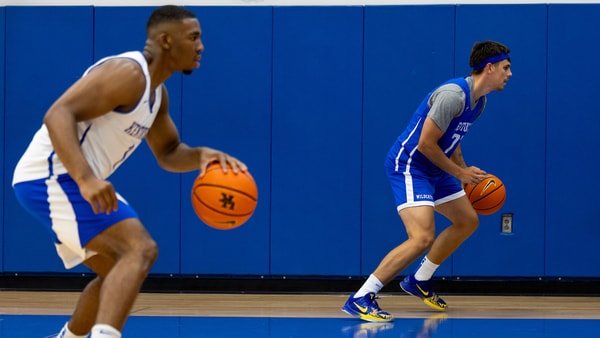
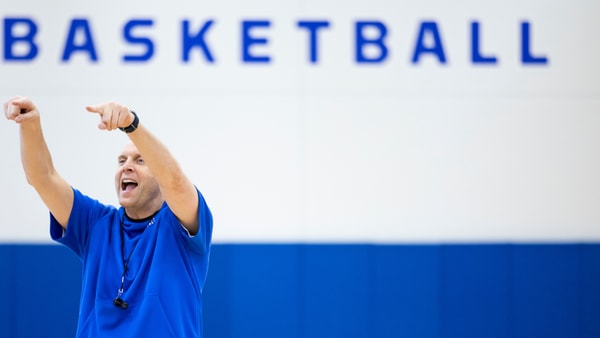
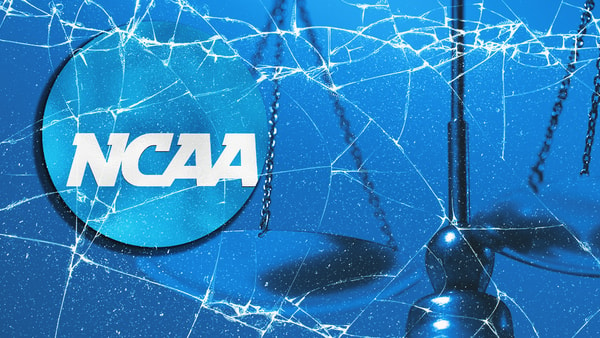
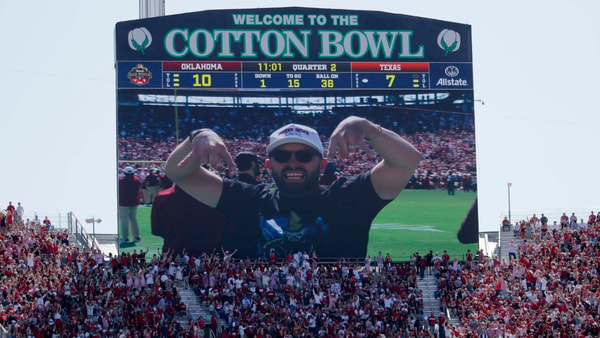
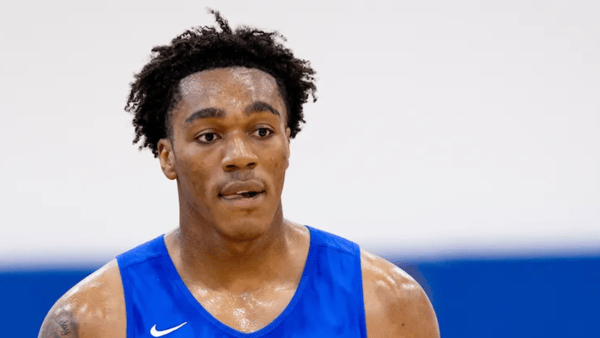
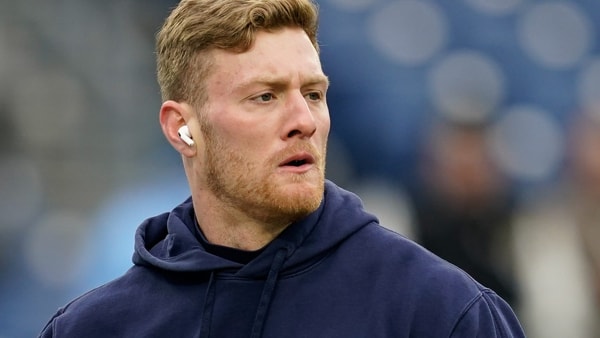
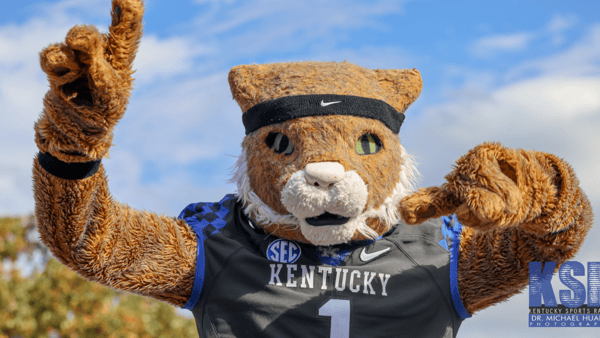
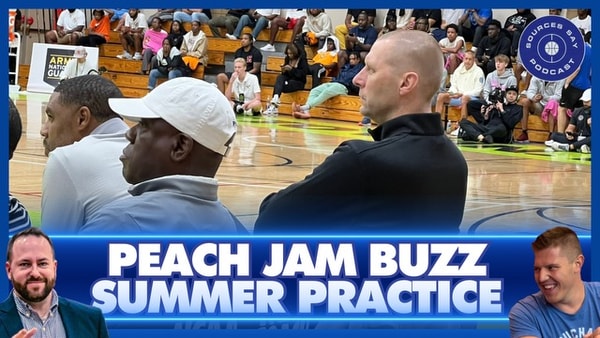
Discuss This Article
Comments have moved.
Join the conversation and talk about this article and all things Kentucky Sports in the new KSR Message Board.
KSBoard